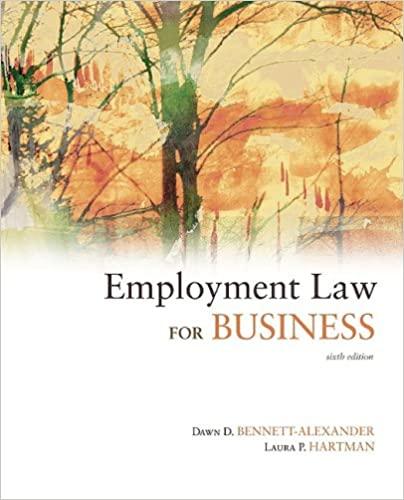1. Consider the similarities between the Courts analysis of the public reaction to contagiousness in Arline (Few...
Question:
2. Is it realistic to think that, as the employer here argued, the contagious aspect of a disease can be divorced from the consideration of the public of having the disease itself? Will an employer always run the risk of being sued in such a situation?
3. What type of policy could you develop that would instruct your managers about how to handle an employee with a contagious disease?
In determining whether a particular individual is handicapped as defined by the [Rehabilitation] Act, the regulations promulgated by the Department of Health and Human Services are of significant assistance. As we have previously recognized, these regulations were drafted with the oversight and approval of Congress; they provide an important source of guidance on the meaning of section 504. Within this statutory and regulatory framework, then, we must consider whether Arline can be considered a handicapped individual. According to the testimony of Dr. McEuen, Arline suffered tuberculosis “in an acute form in such a degree that it affected her respiratory system,” and was hospitalized for this condition. Arline thus has a physical impairment as that term is defined by the regulations, since she had a “physiological disorder or condition affecting her respiratory system.” This impairment was serious enough to require hospitalization, a fact more than sufficient to establish that one or more of her major life activities were substantially limited by her impairment. Thus, Arline’s hospitalization for tuberculosis in 1957 suffices to establish that she has a “record of . . . impairment” within the meaning of [the regulations] and is therefore a handicapped individual.
Fantastic news! We've Found the answer you've been seeking!
Step by Step Answer:
Related Book For 

Employment Law For Business
ISBN: 978-0077347383
6th Edition
Authors: Dawn Bennett Alexander, Laura P Hartman
Question Posted:





